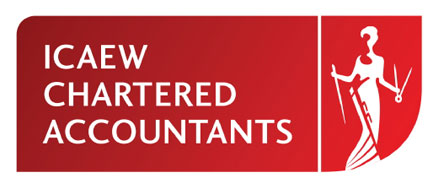Cyprus Sells Bonds, Bailed-0ut Nations’ Market Exile
June 19,2014
Cyprus became the euro area’s final bailed-out nation to return to international markets amid a surge in demand for the region’s higher-yielding debt.
 The Mediterranean country raised 750 million euros ($1.02 billion) in a sale of five-year notes, according to a statement from the Nicosia-based finance ministry. It received orders of about 2 billion euros, the ministry said in the statement.
The Mediterranean country raised 750 million euros ($1.02 billion) in a sale of five-year notes, according to a statement from the Nicosia-based finance ministry. It received orders of about 2 billion euros, the ministry said in the statement.
Cyprus’s market return follows Greece, which sold bonds in April after requiring the biggest ever restructuring of debt two years ago. Portugal last week held its first auction since exiting its three-year international rescue program, and Ireland, which also sought financial aid during the sovereign debt crisis, has resumed regular auctions of its bonds.
“The market’s appetite for peripheral debt allows bailout countries to return to the market, as we saw with Ireland and then Portugal,” said Richard McGuire, head of rates strategy at Rabobank International in London. “This has a positive demonstration effect on other bailout countries, such as Greece and Cyprus, and their return to the market is well received and the supply is taken down without difficulty, it adds to that bullish momentum.”
Cyprus sold the June 2019 bonds to yield 4.85 percent, down from initial price talk at about 5 percent, according to the finance ministry. The sale exceeded expectations and the cash raised will be used to help finance internal borrowing, Finance Minister Haris Georgiades told reporters.
Bond Rally
By returning to markets, Cyprus is tapping into lower borrowing costs across the euro region, which have been catalyzed by extraordinary stimulus measures from the European Central Bank and have consigned the region’s debt crisis to history. The average yield to maturity on euro-area government bonds fell to 1.3392 percent on June 9, the least on record, and was at 1.4011 percent yesterday, according to the Bank of America Merrill Lynch Euro Government Index.
It’s a turnaround for the island-nation, which hasn’t raised 1 billion euros or more at a coupon-bearing bond sale since October 2010, and imposed the first ever capital controls in the euro area as part of a 10 billion-euro bailout in March 2013.
Buyer Breakdown
More than half of the investors buying the notes are based in the U.K., according to the finance ministry’s statement, while 23 percent come from the rest of Europe, 14.5 percent from Cyprus, and 8.5 percent from the rest of the world.
Fund managers acquired 51 percent of the securities, hedge funds got 27 percent, and banks and private banks bought 22 percent of the total amount, the ministry said.
When Greece returned to international markets after a four-year hiatus with a sale of five-year securities, it drew a yield of 4.95 percent, 10 basis points higher than today’s sale by Cyprus.
“Greece has been used as a template by Cyprus,” said David Schnautz, a fixed-income strategist at Commerzbank AG in New York. Cyprus’s “turnaround was definitely amazingly fast. Countries that had less work to do, Ireland, Portugal and Greece, all waited way longer before they approached the market. The ECB action recently has been used as a window of opportunity,” he said.
European governments frequently hire banks when they offer a new, longer-dated security in order to boost potential demand for the debt. Deutsche Bank AG, Goldman Sachs Group Inc., HSBC Holdings Plc, UBS AG and VTB Capital managed the sale.
‘Same Resolve’
“Today’s success doesn’t in any way signify the easing of the effort to reform and strengthen our economy,” Cypriot President Nicos Anastasiades said in an e-mailed statement. “On the contrary, we will continue with the same resolve and consistency our effort to fix and restore our growth prospects,” he said.
Cyprus’s economy, the third-smallest in the 18-nation euro area, shrank 4 percent in the first quarter of 2014 from a year earlier, as unemployment surged to more than 16 percent.
Still, officials representing the so-called Troika of the European Commission, the ECB and the International Monetary Fund, said last month that the island’s economic recovery program is on track, projecting a less severe output contraction this year, and paving the way for the disbursement of the next tranche of emergency international loans. The bailout was attached to the imposition of losses to deposits in its two biggest banks.
Source: http://www.bloomberg.com/



